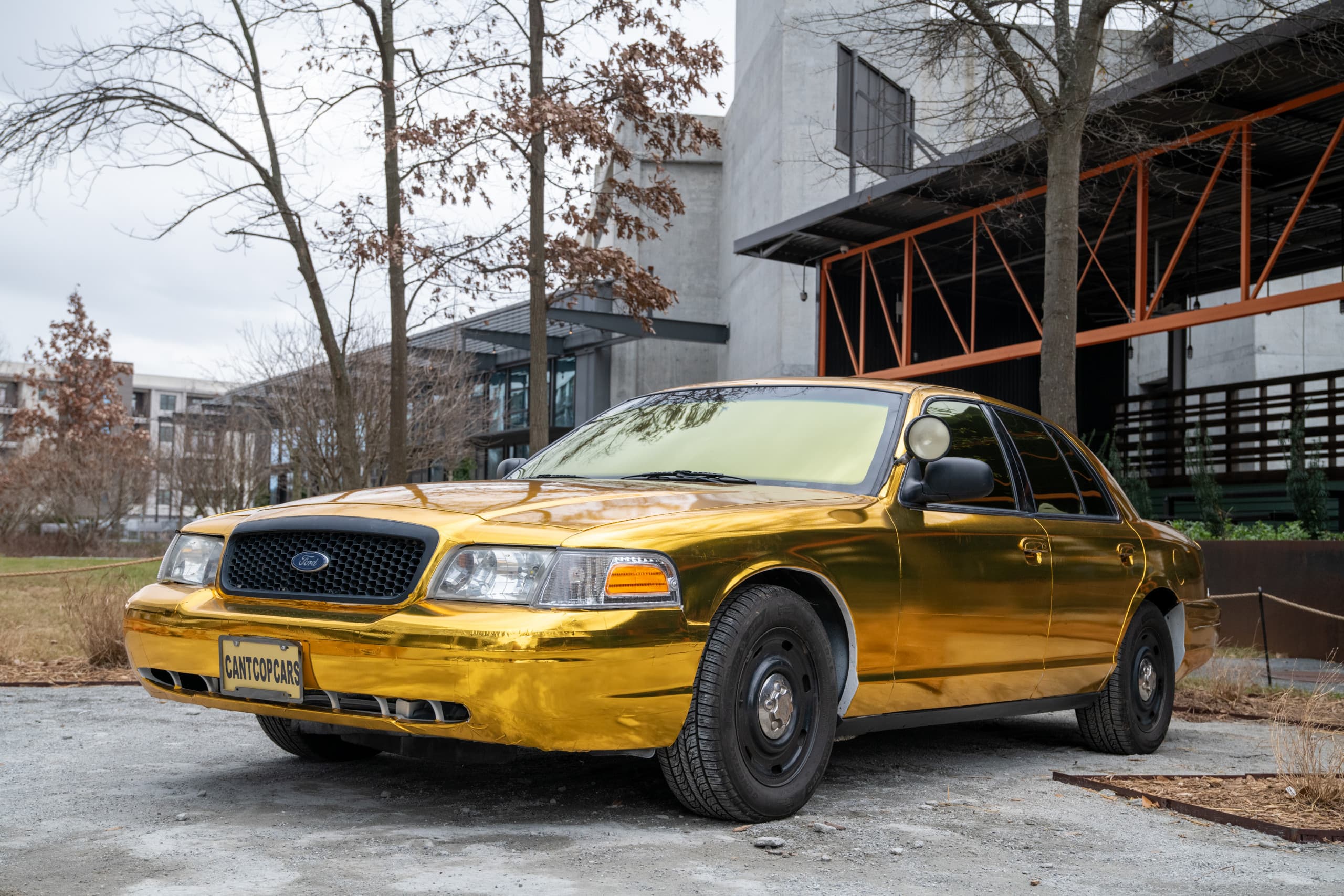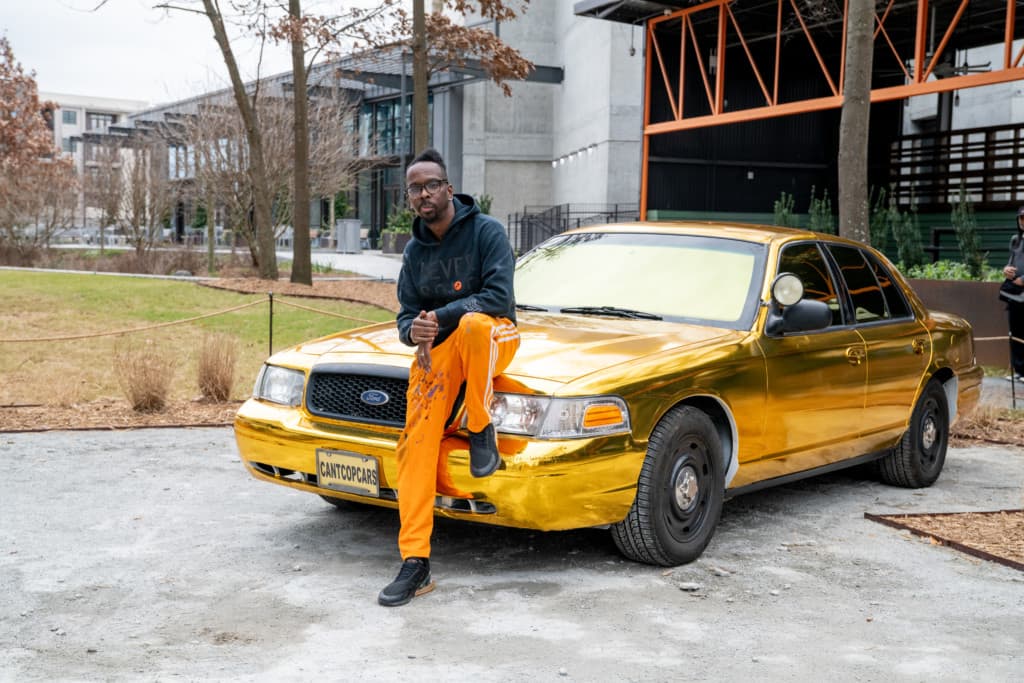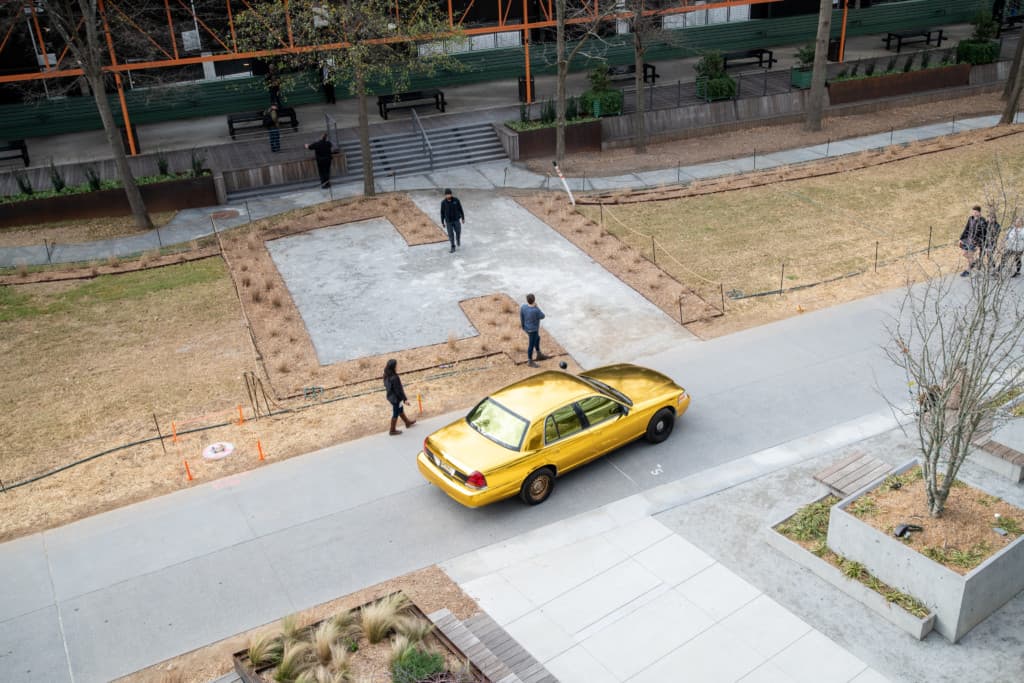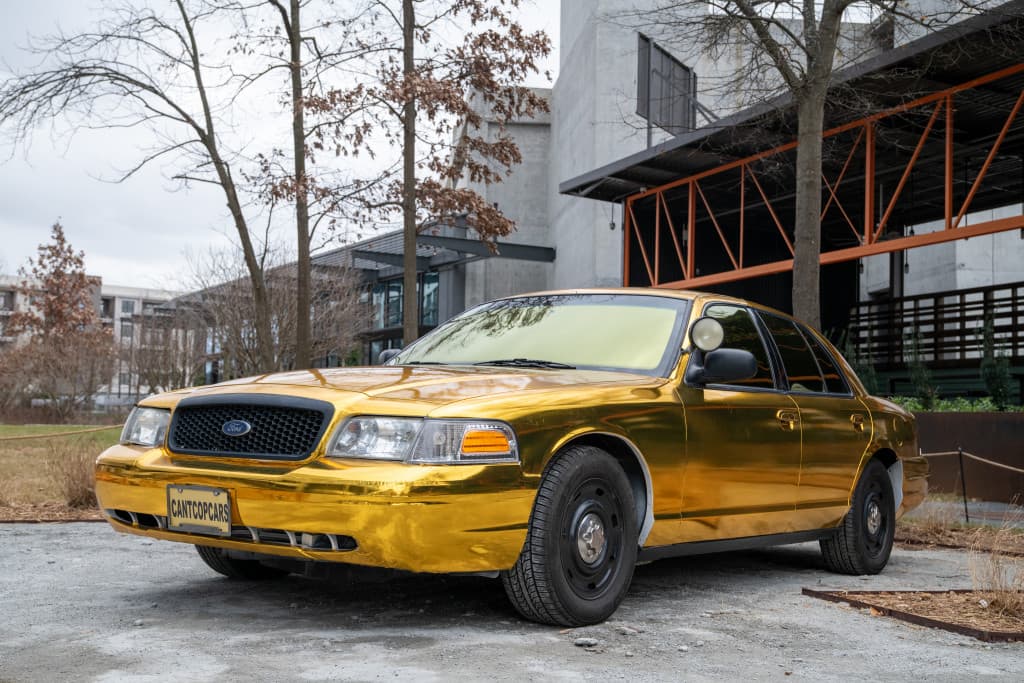Dr. Fahamu Pecou is an interdisciplinary artist and scholar whose works combine observations on hip-hop, fine art and popular culture. Pecou’s paintings, performance art, and academic work addresses concerns around contemporary representations of Black masculinity and how these images impact both the reading and performance of Black masculinity. Fahamu received his BFA at the Atlanta College of Art in 1997 and an PhD from Emory University in 2018. Pecou maintains an active exhibition schedule as well as public lectures and speaking engagements at colleges and museums nationwide.




Dr. Fahamu Pecou is an artist/scholar and was the Artist-in-Residence for the 2019-2020 Art on the Atlanta Beltline exhibition. "We Can’t Cop Cars Without Seeing Cop Cars" is a site specific installation by Dr. Pecou. The installation features a short film by the same title displayed within a modified Ford Crown Victoria Interceptor.
Watch Dr. Pecou's short film: "We Can't Cop Cars Without Seeing Cop Cars."
Watch the Art on the Atlanta Beltline Artist-in-Residence talk between Dr. Pecou and Miranda Kyle, Arts and Culture Program Manager.
Crown Victoria Interceptors are a popular vehicle used in police forces across the country. When decommissioned, they are repurposed and sold at auto auctions, often purchased by Black men in urban communities. The irony of the Crown Victoria being a popular car amongst Black men can’t be overstated, but the silhouette of the vehicle continues to have a visceral affect. The project explores the notion of Black leisure by highlighting spaces where Black men can experience freedom, autonomy, and joy. Few representations of Black life depict these images or even considers these as valid experiences. We Can’t Cop... uses cars as an allegorical as well as a literal suggestion of movement and escapism from the stresses and traumas of the world. From fear, to triumph, to joy and back to reality, the short film uses the aesthetics of magical realism to give viewers a momentary glimpse into the complex emotional landscape of Black male masculinity."